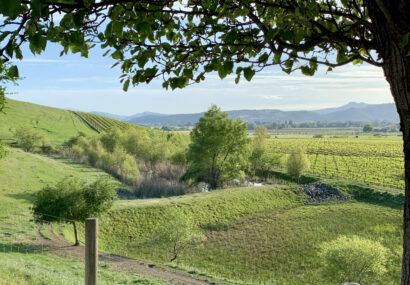U.S. Senate Bill 1770 was introduced by Senators Jeff Flake (R-AZ) and John McCain (R- AZ). The bill addresses the approval of the settlement of water rights claims of the Hualapai Tribe in the State of Arizona, and to authorize construction of a water project relating to those water rights claims.
Background
The Hualapai Tribe (Tribe) is a federally recognized tribe with a reservation that encompasses nearly 1 million acres in northwest Arizona. The Hualapai Reservation includes 108 miles of frontage along the Colorado River, running through a portion of the Grand Canyon. Located in a remote area, the Tribe currently relies on limited surface water and dwindling groundwater supplies. Dr. Damon Clarke, Chairman of the Hualapai Tribe, testified in 2016 before the Senate Indian Affairs Committee that the Tribe needs delivery of Colorado River water to provide a permanent and secure water supply to the growing Reservation population in Peach Springs, and to realize the unique opportunities for economic development the Tribe has already undertaken at Grand Canyon West, on the rim of the Grand Canyon.
Arizona, like much of the arid West, lacks sufficient river water and groundwater to meet all demands. Federally recognized Tribes like the Hualapai Tribe have both federally reserved senior water rights and aboriginal water rights. Without quantified water rights for Tribal governments, Arizona, the federal government, and private sector interests such as mining and agriculture that rely on a stable and secure water supply are not able to fully realize their economic growth potential.
Key Highlights of the Agreement
In this complex agreement, the Tribe would receive 4,000 acre-feet of water per year (AFY) from the Central Arizona Project, which is run by the U.S. Bureau of Reclamation (Bureau). The U.S. Bureau of Reclamation (Bureau) would also construct a new water project to divert, treat, and convey water from the Colorado River to the Reservation and Grand Canyon West for municipal, commercial, and industrial uses on the Reservation. Under the agreement, the Tribe also receives funding from the U.S. Treasury, via the Bureau, for operation and maintenance of the project, technical assistance and training to run the project once it is constructed, and a firm amount of water to be delivered annually. The Bureau’s new water delivery contract with the Hualapai Tribe is for permanent service (per 43 U.S.C. 617(d)) and without limit as to term.
Under the settlement agreement, over $200,000,000 will be put into the Hualapai Water Project Account, managed by the Bureau, to achieve the purposes of the agreement. The United States also took several specified parcels of land into trust for the benefit of the Hualapai Tribe.
Since 2011, a group of federal, state, Tribal and private sector negotiators have been working to settle the Hualapai’s water rights claims to the Colorado River. This complex settlement agreement not only settles all of the federally reserved water rights and aboriginal claims the Tribe has for a quantified amount of water, but also preempts the Tribe from making new claims in the future for land that may be added to the Reservation. S 1770states that the Tribe releases the United States, Arizona, and any other individual, entity, or corporation from past, present, and future claims for water rights, including rights to Colorado River water, for Hualapai land, arising from time immemorial and, thereafter, forever.
At its core, the settlement is meant to provide a secure and stable water supply to the Tribe, and provide more certainty to private sector entities such as Freeport Minerals Corporation that have an interest in the water, as well as the state and federal Government. Congress must ratify the settlement and provide funding in order for the settlement agreement to take effect. S 1770 requires the Bureau to comply with the federal Endangered Species Act, the National Environmental Policy Act, and other applicable federal environmental laws in implementing the agreement.
The Hualapai Tribe will receive its 4,000 AFY of water from Central Arizona Project water that was previously allocated to non-Indian agricultural entities. The Tribe maintains its right to store, lease, transfer the water within the state via an exchange. Under the agreement, the Tribe can use the water on or off of the Hualapai Reservation within the lower basin in Arizona for any purpose.
The settlement includes a release of claims against the Freeport Mining Company, along with an undisclosed amount of funding from Freeport Mining Company, to be deposited into an Economic Development Fund. S 1770 states that the United States shall not be liable for any failure to carry out an obligation or activity authorized by the Act if Congress does not provide adequate appropriations to carry out the agreement. Therefore both ratification of the agreement and appropriation of funds from Congress are necessary for the project to move forward.
Key Changes
A similar settlement was reached in 2016 with support from the Tribe and the State of Arizona, but the Bureau did not support the settlement in Congress. The Department of the Interior submitted testimony in opposition to the bill (then called S 3300), expressing concerns about the federal costs of the settlement, the amount expended to pump water thousands of feet up cliffs from the bottom of the Grand Canyon, and the broad sovereignty waiver included for the Tribe.
S 1770, unlike S 3300, includes additional funding for the project and a more limited waiver of sovereign immunity. The high cost of moving the water up the canyon for a relatively small amount of water remain the same, however. The same Senate committee will hold a hearing to take testimony on December 6, 2017. It remains to be seen whether a new Administration will support the revised bill and support the settlement.
Conclusion and Implications
A comprehensive settlement of Tribal water rights holds interest for any state, private sector interest, or Tribal Government throughout the West. The federal government has an ongoing policy to favor quantification and settlement of tribal water rights, but such settlements are rare. The progress of this settlement agreement through Congress should be of interest to those who use water from other water projects operated by the Bureau, such as the Central Valley Project in California. While these complex issues may seem intractable, the Hualapai Tribe Water Rights Settlement Act of 2017 is an example of a successful negotiation that resulted in a comprehensive agreement supported by parties with divergent interests, which share a common goal of certainty. For more information about S 1770, see: https://www.congress.gov/bill/115th-congress/senate-bill/1770
(Holly Roberson, Dan O’Hanlon)



